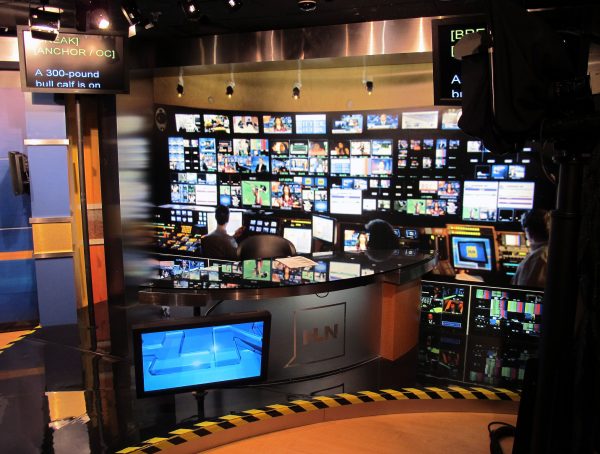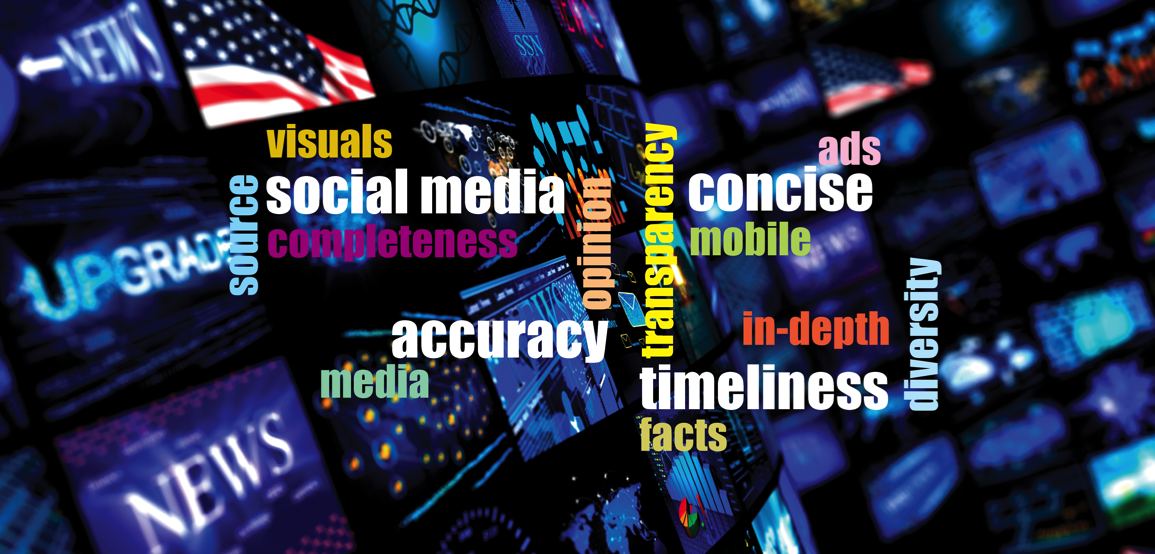By Bud Ward
Their stations run promotional ads bragging about their forecasting accuracy, but television weathercasters are human. Anyone who banked on a sunny day on the basis of one of their predictions, only to get drenched on the way to work, can attest to that.
Now, a University of Texas (UT) study has highlighted what a researcher says is TV weathercasters’ humanity on the subject of global climate change — specifically, their tendency to let their attitudes on the subject color their understanding of the scientific findings.
“There’s been an assumption for a long time that scientists (including scientifically trained weathercasters) are above that, that the rigor of the process excluded their own attitudes from impinging on research,” says Kris Wilson, a journalism professor at UT. But Wilson says his study “shows this is impossible. Weathercasters are human. Their own attitudes and values will have an impact on their understanding of the science. Science doesn’t exist in a vacuum.”
Instead of weathercasters’ seniority in the field, the size of the TV market they work in, or whether they hold a stamp of approval from the American Meteorological Society or the National Weather Association, the strongest predictor of variation in knowledge about the science of climate change is values and attitudes regarding the subject, Wilson found.
That finding was based on responses of 217 weathercasters who answered a survey he had sent to 445 of them. “Attitudes and values” with regard to climate change were measured by responses to statements such as “Climate change is a serious environmental issue” and “I understand the science of climate change.”
While 57 percent of respondents said they believe they understand the science, versus only 12 percent who thought they didn’t, Wilson found that many in the group had misconceptions about particular scientific issues. Less than half, for instance, were aware that landfills, growing rice, and CFC leaks from air conditioners are sources of greenhouse gases.
“The data seem to show that even for people trained in science, belief systems have a tremendous impact, funneled through the lens of personal experience,” Wilson said. When he presented his findings to a group of television weathercasters, one individual prominent in the field argued that “global warming was a Clinton conspiracy” aimed at gaining more funding for climate-change research, Wilson said.
A former TV journalist and weathercaster himself, Wilson holds a doctorate in geography with a specialty in climatology and climate change. He believes the findings of the study are important because of weathercasters’ vital, but poorly understood, role as “science educators” for the public. Fifty-four percent of the weathercasters responding to the survey, for instance, said they have been asked to be “climate change reporters in some capacity.”
“By default, they’re science communication specialists, who are already doing reporting,” Wilson said. “We want to improve the process. If we’re making the supposition they just can do the job because they’re trained in science, that’s an error.”
The attitude-measuring statements in the survey were not “political” in the traditional ideological sense, and Wilson said he may design methods for future surveys to measure that. “Journalists tend to be skeptical of everyone,” he said, but tend to be less skeptical of scientists “because it’s felt they’re above politics. Politicians are expected to be political, so they’re challenged more. Scientists are put on a podium.” Nonetheless, he has found that reporters who rely more on scientists as sources tend to be better-informed about points of scientific consensus about climate change.
The weathercaster survey was a follow-up to earlier research Wilson did on reporters’ knowledge of climate-change science. For reporters, the primary factors having an impact on their accurate knowledge of that science included whether they work full-time on an environment or science beat and their differing use of sources. Reporters assigned to the environment or science beat had “far superior” knowledge than other reporters, Wilson said, and “those that relied primarily on scientists (as sources) were better informed than those who relied on other media.”
Wilson teaches environmental journalism and television reporting among other courses at the University of Texas. The weathercaster study can be downloaded from Wilson’s faculty web page.
- Bud Ward is the editor of Environment Writer, a monthly publication focusing on journalism on environmental and natural resources issues. This article first appeared in the April 2003 issue.








